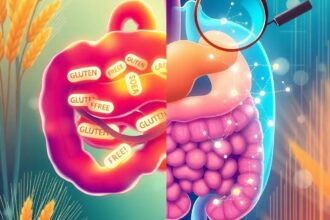Explore the emerging science of postbiotics, their health benefits, and how they differ from prebiotics and probiotics. Learn how to boost postbiotic production through diet and supplements.
Postbiotics, the bioactive compounds produced by gut bacteria, are revolutionizing our understanding of gut health and its impact on overall well-being.
Introduction to Postbiotics
Postbiotics are the bioactive compounds produced by gut bacteria during the fermentation of dietary fibers. Unlike probiotics, which are live bacteria, and prebiotics, which are the food for these bacteria, postbiotics are the end products of this fermentation process. These compounds include short-chain fatty acids (SCFAs), enzymes, peptides, and other metabolites that play a crucial role in maintaining gut health and overall well-being.
Differences Between Prebiotics, Probiotics, and Postbiotics
While probiotics are live microorganisms that confer health benefits when consumed in adequate amounts, prebiotics are non-digestible food components that promote the growth of beneficial bacteria. Postbiotics, on the other hand, are the metabolic byproducts of these bacteria. According to a study published in Frontiers in Microbiology
, postbiotics have unique advantages, including stability and safety, making them a promising area of research in gut health.
Health Benefits of Postbiotics
Postbiotics have been shown to influence various aspects of health, including immune function, metabolic regulation, and gut barrier integrity. For instance, SCFAs like butyrate, acetate, and propionate are known to reduce inflammation and support the gut lining. A 2020 review in Nutrients
highlighted that postbiotics could help manage conditions like irritable bowel syndrome (IBS), allergies, and obesity.
Recent Research on Postbiotics
Recent studies have demonstrated the potential of postbiotics in clinical settings. A 2021 study in Gut Microbes
found that postbiotic supplements could improve symptoms in patients with IBS. Another study published in Nature Communications
suggested that postbiotics might play a role in preventing allergic reactions by modulating the immune response.
Practical Tips for Increasing Postbiotic Production
To boost postbiotic production, it is essential to consume a diet rich in fiber and fermented foods. Foods like yogurt, kefir, sauerkraut, and kimchi are excellent sources of probiotics that can enhance postbiotic production. Additionally, incorporating a variety of plant-based foods such as fruits, vegetables, legumes, and whole grains can provide the necessary substrates for gut bacteria to produce beneficial postbiotics.
Emerging Postbiotic Supplements
The market for postbiotic supplements is growing, with products like butyrate supplements gaining popularity. These supplements are being studied for their potential to support gut health and manage conditions like inflammatory bowel disease (IBD) and metabolic syndrome. However, it is crucial to consult healthcare professionals before starting any new supplement regimen.
Conclusion
The science of postbiotics is still in its early stages, but the potential benefits are immense. By understanding the interplay between prebiotics, probiotics, and postbiotics, we can take a more holistic approach to gut health. Incorporating a diverse, fiber-rich diet and considering postbiotic supplements may offer new avenues for improving overall well-being.




